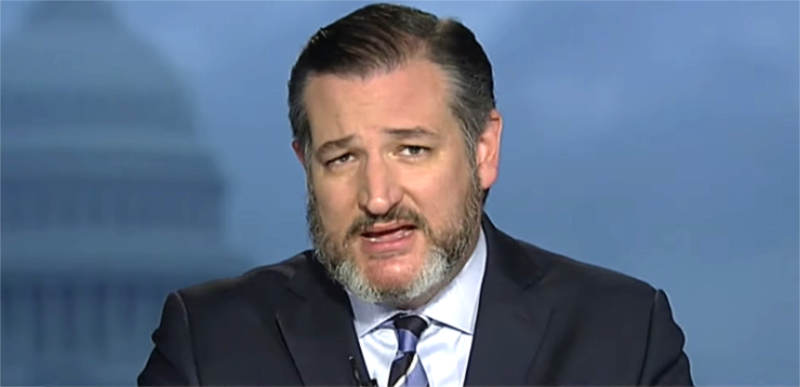Last night Ted Cruz wrote a letter and asked the Supreme Court to take up the Pennsylvania case that challenged the constitutionality of the state’s universal mail-in voting law passed in 2019. The case was thrown out by the Pennsylvania Supreme Court last week.
#SCOTUS should hear the emergency appeal on the Pennsylvania election challenge. pic.twitter.com/mzwr4eaHR8
— Ted Cruz (@tedcruz) December 1, 2020
Cruz writes:
“Today, an emergency appeal was filed in the U.S. Supreme Court challenging the election results in Pennsylvania. This appeal raises serious legal issues, and I believe the Court should hear the case on an expedited basis.
“The Pennsylvania Constitution requires in-person voting, except in narrow and defined circumstances. Late last year, the Pennsylvania Legislature passed a law that purported to allow universal mail-in voting, notwithstanding the Pennsylvania Constitution’s express prohibition.
“This appeal argues that Pennsylvania cannot change the rules in the middle of the game. If Pennsylvania wants to change how voting occurs, the state must follow the law to do so.
“The illegality was compounded by a partisan Democrat Supreme Court in Pennsylvania, which has issued multiple decisions that reflect their political and ideological biases. Just over a month ago, Justice Alito, along with Justice Thomas and Justice Gorsuch, wrote—correctly, I believe—concerning the Pennsylvania court’s previous decision to count ballots received after Election Day, that ‘there is a strong likelihood that the State Supreme Court decision violates the Federal Constitution.’
“In the current appeal, the Pennsylvania Supreme Court dismissed the claim based on a legal doctrine called ‘laches,’ which essentially means the plaintiffs waited too long to bring the challenge. But, the plaintiffs reasonably argue that the Pennsylvania Supreme Court has not applied that doctrine consistently and so they cannot selectively enforce it now.
“Even more persuasively, the plaintiffs point out that the Pennsylvania Supreme Court has also held that plaintiffs don’t have standing to challenge an election law until after the election, meaning that the court effectively put them in a Catch-22: before the election, they lacked standing; after the election, they’ve delayed too long. The result of the court’s gamesmanship is that a facially unconstitutional election law can never be judicially challenged.
“Ordinarily, the U.S. Supreme Court would stay out of election disputes, especially concerning state law. But these are not ordinary times.
“As of today, according to Reuters/Ipsos polling, 39 percent of Americans believe that ‘the election was rigged.’ That is not healthy for our democracy. The bitter division and acrimony we see across the nation needs resolution. And I believe the U.S. Supreme Court has a responsibility to the American people to ensure that we are following the law and following the Constitution. Hearing this case—now, on an emergency expedited basis—would be an important step in helping rebuild confidence in the integrity of our democratic system.”
Cruz notes that normally the Supreme Court wouldn’t take up a case like this because it deals with their state constitution. I’ve read the same argument elsewhere and it makes sense. But at the same time, this unconstitutional law has had a significant effect on federal elections, and as Cruz points out, these aren’t ordinary times.
I also like how Cruz argues against the ‘laches’ issue that the Pennsylvania Supreme Court used to dismiss the case, pointing out that the state’s high court has essentially made the law unchallengeable by denying standing in challenges before the election and saying plaintiffs waited too long after the election.
Hopefully this will persuade the high court to take up the case. We’ll let you know as soon as we hear something…

